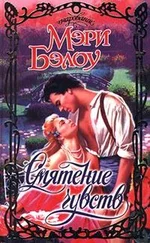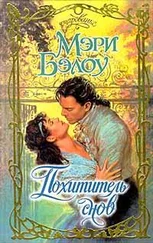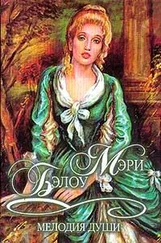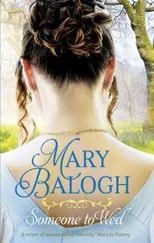“What happened to her?” he asked.
“Oh,” she said. “She is here too. She is Anna. My sister-in-law. Avery’s wife.”
Gabriel could only imagine the drama this family must have lived through after that discovery was made only to be followed by that marriage.
“My cousin Camille was older than Harry,” Lady Jessica told him. “Abigail was younger, just a year older than me. We were more like sisters than cousins. We were the very best of friends. We shared dreams for our future. I suppose it would be very wrong of me to claim that I suffered as much as she did when she lost everything, including her very legitimacy, just before she was to make her come-out here in London. But . . . I suffered. I wanted to die. Foolish, was it not? I was seventeen. One’s emotions tend to be very raw at that age.”
“What happened to her?” he asked. “And to her older sister?”
“Oh,” she said. “Camille surprised everyone by marrying an artist and schoolmaster who grew up at the same orphanage as Anna. They live in a big house in the hills above Bath, and they have a large family. Some of the children are their own and some are adopted. They use the house as a sort of artists’ school or gathering place. One could never have predicted it of Camille. She was so very . . . correct, so very stiff and humorless. She was betrothed to a man no one liked, including her, I do not doubt. I am not sure many people liked her . Then, at least. But she’s a different person now. She is very happy. No one seeing her could doubt that.”
It was strange, Gabriel thought, how one could look at an aristocratic family and assume that their lives were lived on an even keel with no significant troubles. With the Westcott and Archer families, it seemed nothing could be further from the truth.
“And Abigail?” he asked.
“For several years,” she told him, “she retired within herself. There is no other way of putting it. She was quiet, dignified, withdrawn. She would not allow anyone in the family to help her. She would not allow me to suffer with her. And then two years ago she met and married a lieutenant colonel who had brought Harry home from an officers’ convalescent home in Paris, where he had been since the Battle of Waterloo. She married him privately, with no one else but Harry present. No one even knew she liked Gil. She certainly did not at first. They live now in Gloucestershire with their two children—Gil already had a daughter by a previous marriage. And she is happy . She did not settle for anything less. She is happy.”
A possibility struck him. “Is she why you have never married?” he asked her.
She sat straighter on the bench, though her fingers rested on the keys of the pianoforte. Some of the haughtiness had returned to her manner. “I have not married, Mr. Thorne,” she said, “because I have not chosen to do so.”
“Did you feel somehow betrayed,” he asked her, “by the sudden marriage of your cousin?”
She turned her face toward him. “I am happy for her, Mr. Thorne,” she said. “More happy than I can say.”
Which did not answer his question.
“I am sure you are,” he said, and he moved his left hand across the keyboard until his little finger overlapped hers. He rubbed the pad of it lightly over the back of her finger.
He fully expected that she would snatch her hand away. Instead she looked at their hands and he thought he heard her swallow.
“A single rose,” she said softly. “The touch of a single finger. Is this your idea of romancing me, Mr. Thorne?”
It would be a bit pathetic if it were true.
“If you expect grand gestures,” he said, his voice low to match hers, “perhaps it is Rochford whose attentions you ought to encourage.”
Her eyes came slowly to his and held there for a moment. And Lord, he thought, if he had a knife he would surely be able to cut through the air between them. It seemed like a tangible thing, fairly throbbing with tension. Then she sighed softly.
“And perhaps, Mr. Thorne,” she said, “it is time we mingled with the other guests. I am going to see if there is anything my grandmother needs. Or my great-aunt.”
She got to her feet, walked behind the stool, and made her way across the drawing room toward the Dowager Countess of Riverdale. Anthony Rochford met her halfway there, and they approached the dowager together.
Gabriel lowered the cover over the keys, got to his feet, and looked around before moving toward the closest group. Strangely, he had not even been thinking of romance when he had caressed the back of her finger.
He had only been feeling it.
Ten
There was a letter among the usual invitations beside Gabriel’s plate when he sat down to breakfast the following morning. It was a report from Simon Norton at Brierley. Gabriel read it while he sipped his coffee.
Manley Rochford was spending lavishly on new furniture and draperies inside the house and on new arbors and follies and other new ventures in the park. These included a wilderness walk over the hills behind the house and a lake in the southwest corner of the park.
Gabriel’s eyes paused there. The southwest corner was where Mary had her cottage.
Manley and his wife were entertaining on a grand scale—teas and dinners and evening parties. There were plans in the making for a grand outdoor fete and evening ball during the summer, after their return from London as the Earl and Countess of Lyndale.
All the money that was being spent, Norton had discovered, had been borrowed on the expectation of the fortune Mr. Rochford was about to inherit. That was something, at least, Gabriel thought. Manley had obviously not been able to get his hands on the fortune that was not yet officially his.
The next section of the letter was more disturbing, especially to a man who had made a bit of a name for himself in Boston for treating every last one of his employees well. There was some distress in the neighborhood affecting those servants who had lost their positions to the men Manley had brought with him to Brierley. In some instances their homes had also been confiscated and given to the new staff. Some of the dismissed servants had families, a fact that multiplied the suffering.
A few had been hired and accommodated elsewhere in the neighborhood. Others, notably those who were young and unattached, had moved away to look for work elsewhere. A few had been rehired at Brierley as farm laborers—at a wage not only below what they had earned in their previous positions but also below what the other farm laborers doing comparable work were earning. Some had found no work at all. Rumor had it, though Norton had not been able to substantiate it, that all wages were to go down once Manley became the earl. And, incidentally, Norton’s own wages were lower than those of any of the other gardeners, though he was not complaining, he had added, since Mr. Thorne paid him well indeed for the steward’s job he was not yet doing.
Norton had discovered that the newly installed steward, the one Manley had brought with him, had paid a call upon Miss Beck and, without a by-your-leave, had tramped through her cottage, upstairs and down, in muddy boots, peering into every room and cupboard and nook and cranny while ignoring her completely and kicking one of her cats out of his way and cuffing one of her dogs, which had been yapping at his heels. He had informed Miss Beck that she must clear out all her junk and get rid of all the strays without further delay. The cottage was to be converted into a rustic shelter to add a picturesque touch to an island that would stand in the middle of the new lake.
Mary.
Gabriel slammed one hand down on the report, closed his eyes, and concentrated upon breathing through the fury that tempted him to sweep all the unoffending dishes off the table around him for the mere satisfaction of hearing them smash on the floor.
Читать дальше












